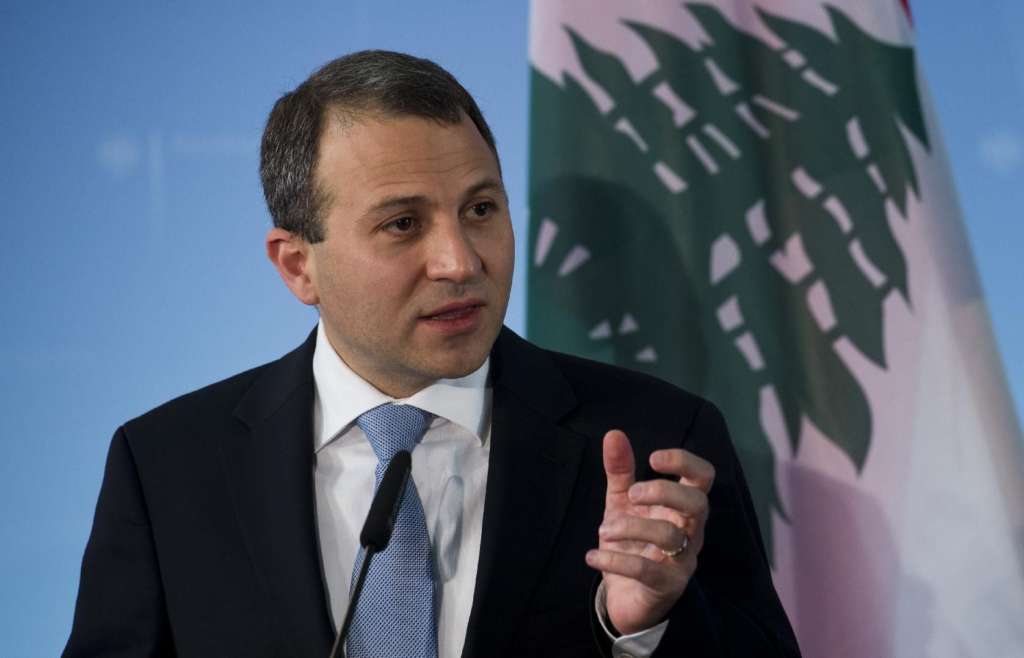Beirut – Lebanon’s Foreign Affairs Minister Gebran Bassil said that the new era, led by President Michel Aoun, was focused on works and achievements.
In an interview with Asharq Al-Awsat newspaper, Bassil noted that his party has put behind all the “bickering” and decided to open a new chapter of political work.
He warned, however, that his party would expose all those who seek to hamper the country’s political process.
Bassil, Aoun’s son-in-law and the head of the Free Patriotic Movement, said that his party would nominate Muslim candidates for the upcoming parliamentary elections.
He strongly denied claims that previous proposals of the new voting system were aimed at guaranteeing his arrival to Parliament.
While he said that he was committed to the political agreement that resulted in the adoption of the current electoral law, the minister stressed that he would seek to amend the law following the elections.
“Lebanon is now on a constitutional, independent path,” Bassil said, adding: “The Lebanese people, for the first time in their history, have elected a president with their own will and created a government and adopted an electoral law without foreign interference.”
“It is a Lebanese phase par excellence that we would like to translate into agreements and a prosperous economy,” the minister also said.
Asked about the government’s plan of action, which was adopted during last week’s consultative meeting in Baabda Palace, Bassil said: “We want to establish a civil state and to consolidate equality between the Lebanese with the aim to abolish political sectarianism.”
The other part of the plan of action focuses on economic reforms, according to Bassil, who underlined that the government was laying much importance on economic issues and the fight against corruption.
He noted in this regard that the president would be closely following up on the implementation of the new national agreement, which would be implemented within the framework of comprehensive institutional work.
The foreign minister warned that those who would seek to hamper the implementation of the agreement would be exposed to the public.
“Confessions cannot protect corrupt people; nobody will protect them,” he stated.
He noted that the paper has set out mechanisms to tackle the issues of electricity, water, and oil.
On the electoral law, the head of the FPM said that the new voting system “has mistakes, which should be corrected.”
“I am committed to the political agreement (over the law), and I call for its amendment, but not during this round (the upcoming elections),” he added.
Bassil rejected claims that the new electoral law was tailored to his party’s own interests, saying: “On the contrary, I sacrificed myself for my colleagues.”
He also stressed that his alliance with the Future Movement would be translated in the elections, without elaborating on how the electoral lists would be formed.
